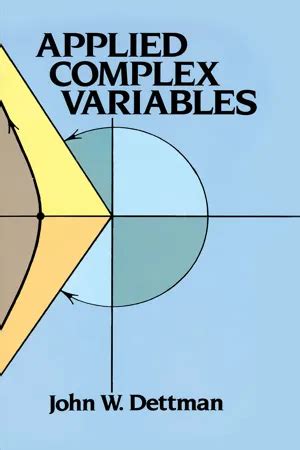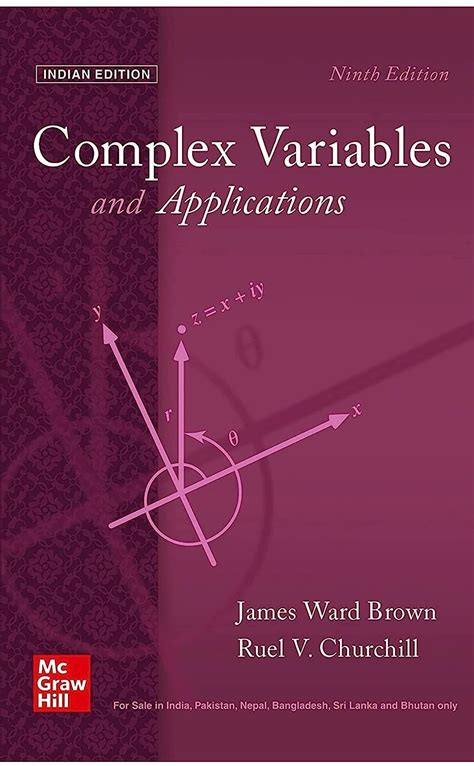Complex variables are a fundamental concept in mathematics, particularly in the fields of calculus, algebra, and analysis. They represent an extension of the real number system, allowing for the introduction of imaginary numbers, which are essential in describing many physical phenomena. The concept of complex variables has far-reaching implications in various disciplines, including physics, engineering, and computer science. In this article, we will delve into the world of complex variables, exploring their definition, properties, and applications, as well as their significance in modern mathematics and science.
Key Points
- Complex variables are an extension of the real number system, incorporating imaginary numbers.
- The concept of complex variables is crucial in describing many physical phenomena, such as electromagnetic waves and quantum mechanics.
- Complex analysis, a branch of mathematics, deals with the study of complex variables and their properties.
- Complex variables have numerous applications in physics, engineering, and computer science, including signal processing, control theory, and cryptography.
- The understanding of complex variables is essential for advancements in various fields, such as quantum computing and telecommunications.
Definition and Properties of Complex Variables

A complex variable is a mathematical object that can be represented as a pair of real numbers, typically denoted as z = x + iy, where x and y are real numbers, and i is the imaginary unit, satisfying the equation i^2 = -1. The real part of the complex variable is x, while the imaginary part is y. Complex variables can be added, subtracted, multiplied, and divided, following specific rules and properties.
Algebraic Operations with Complex Variables
The algebraic operations with complex variables are defined as follows: addition, z1 + z2 = (x1 + x2) + i(y1 + y2); subtraction, z1 - z2 = (x1 - x2) + i(y1 - y2); multiplication, z1 * z2 = (x1 * x2 - y1 * y2) + i(x1 * y2 + x2 * y1); and division, z1 / z2 = ((x1 * x2 + y1 * y2) / (x2^2 + y2^2)) + i((y1 * x2 - x1 * y2) / (x2^2 + y2^2)). These operations are essential in performing calculations with complex variables.
| Operation | Definition |
|---|---|
| Addition | z1 + z2 = (x1 + x2) + i(y1 + y2) |
| Subtraction | z1 - z2 = (x1 - x2) + i(y1 - y2) |
| Multiplication | z1 * z2 = (x1 * x2 - y1 * y2) + i(x1 * y2 + x2 * y1) |
| Division | z1 / z2 = ((x1 * x2 + y1 * y2) / (x2^2 + y2^2)) + i((y1 * x2 - x1 * y2) / (x2^2 + y2^2)) |

Applications of Complex Variables

Complex variables have numerous applications in various fields, including physics, engineering, and computer science. In physics, complex variables are used to describe the behavior of electromagnetic waves, quantum mechanics, and the behavior of complex systems. In engineering, complex variables are used in signal processing, control theory, and telecommunications. In computer science, complex variables are used in cryptography, coding theory, and algorithm design.
Signal Processing and Control Theory
In signal processing, complex variables are used to analyze and manipulate signals, which are essential in various applications, such as audio processing, image processing, and telecommunications. In control theory, complex variables are used to design and analyze control systems, which are crucial in maintaining stability and performance in various systems, such as aircraft, robots, and power grids.
| Application | Description |
|---|---|
| Signal Processing | Analysis and manipulation of signals using complex variables |
| Control Theory | Design and analysis of control systems using complex variables |
| Cryptography | Use of complex variables in cryptographic algorithms and protocols |
| Coding Theory | Use of complex variables in error-correcting codes and data compression |
Complex Analysis and Its Significance
Complex analysis, a branch of mathematics, deals with the study of complex variables and their properties. It provides a framework for understanding the behavior of complex systems and has numerous applications in physics, engineering, and computer science. The understanding of complex analysis is essential for advancements in various fields, such as quantum computing and telecommunications.
Historical Development of Complex Analysis
The concept of complex analysis dates back to the 18th century, when mathematicians such as Leonhard Euler and Carl Friedrich Gauss developed the theory of complex numbers. Over the years, complex analysis has evolved, with significant contributions from mathematicians such as Augustin-Louis Cauchy, Bernhard Riemann, and David Hilbert. Today, complex analysis is a fundamental tool in mathematics and science, with numerous applications in various fields.
What are the main applications of complex variables?
+Complex variables have numerous applications in physics, engineering, and computer science, including signal processing, control theory, and cryptography.
What is the significance of complex analysis?
+Complex analysis provides a framework for understanding the behavior of complex systems and has numerous applications in physics, engineering, and computer science.
How are complex variables used in signal processing?
+Complex variables are used to analyze and manipulate signals, which are essential in various applications, such as audio processing, image processing, and telecommunications.
In conclusion, complex variables are a fundamental concept in mathematics, with numerous applications in physics, engineering, and computer science. The understanding of complex variables and complex analysis is essential for advancements in various fields, such as quantum computing and telecommunications. As research and development continue to advance, the significance of complex variables will only continue to grow, enabling new breakthroughs and innovations in various disciplines.
